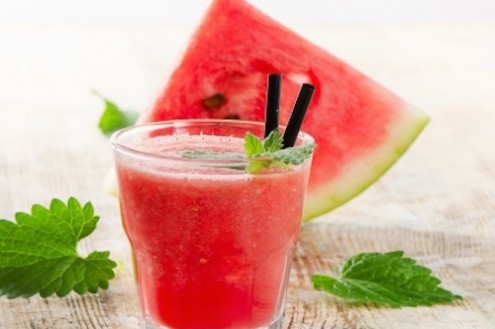Even though you may have educated yourself on the difference between UVA and UVB rays, and which sunscreen SPF works best on your skin, did you know you can enhance protection from the sun by eating certain foods?
It's true what doctors say: foods have the power to heal your body, as well as protect it. Certain foods can boost your skin's ability to ward off the damages of UV exposure.
So, what are these five foods that can help protect against the sun?
- Heirloom tomatoes
- Pomegranate seeds
- Watermelon
- Bell peppers
- Wild salmon
Dana James, MS, CNS, CDN, shares the five foods that naturally enhance protection against the sun.
